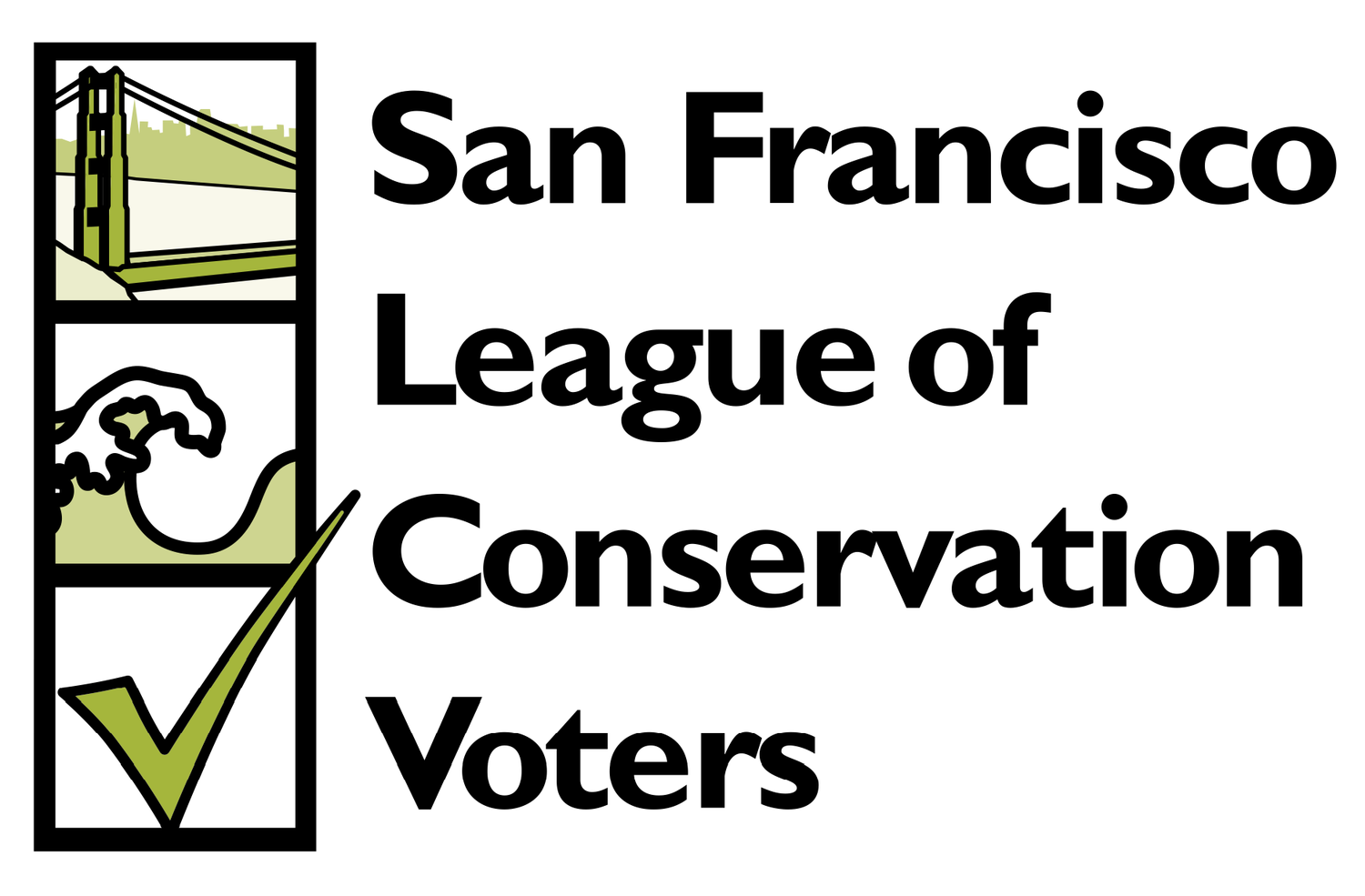As environmentalists, we at the San Francisco League of Conservation Voters are appalled by the Trump administration’s continued assault on the environment. However, California's leading role in confronting and countering disastrous federal policies is a bright spot in dark times.
At the local level, in the fast-approaching mayoral election, we find San Francisco in a strong position, as all three front-runners in the race have real environmental credentials. We can honestly say we would look forward to working with any of their administrations to advance the causes of climate protection, sustainable transportation, dense and affordable housing, clean energy, water conservation, and natural resource protection.
In that light, the San Francisco League of Conservation Voters is pleased to endorse, in ranked-choice order, 1. Mark Leno, 2. Jane Kim, and 3. London Breed.
#1 Mark Leno
We are proud to endorse Senator Mark Leno as our first choice for mayor of San Francisco. He is the strongest environmental leader on the ballot as well as the most proven administrator and politician, excelling in each office he has held, from the San Francisco Board of Supervisors, to the State Assembly, and most recently, the State Senate.
The sheer breadth of Leno’s environmental work over the past decades has been remarkable, from sponsoring the 2001 resolution for the first permanent bike lane on Valencia Street and authoring San Francisco’s first inclusionary housing ordinance in 2002, to getting SB350 passed in 2015. SB 350 set the nation’s highest standards for fighting climate change with state goals to increase electricity production from renewables to 50% by 2050 and to double energy efficiency in buildings by 2030. He also co-authored the Complete Streets Act in 2007 to build streets for walking and biking as well as driving. He has a nuanced understanding of sustainable transportation policy and a commitment to freedom from fossil fuels. His work on a wide range of environmental issues including toxic flame-retardant chemical reform, pesticide ingredient disclosure, fracking moratoriums, clean water, renewable energy, methane gas emission reduction, community-choice power, and combating ocean acidification have been exemplary.
While other Sacramento stalwarts have returned home and been capable mayors (whether we agreed with them or not), our greatest questions regarding a Leno administration are whether he is prepared for the changes in San Francisco politics since his tenure on the Board of Supervisors and for the contentious melee of City Hall. We are counting on his experience and his energy, and we believe he is up to the challenge.
#2 Jane Kim
Supervisor Jane Kim, our second choice, has championed a number of important environmental causes and is notable as the only candidate in the race (so far) who has shared a detailed transportation plan. Her leadership on Vision Zero, the ongoing effort to reduce vehicle-related deaths on city streets to zero, has been critical. She is the only candidate who has publicly backed congestion pricing for San Francisco, demonstrating her ability for authoring bold new initiatives. This type of innovative transportation policy is perhaps the most important area where San Francisco can lead the nation in cutting-edge environmental action. Additionally, Kim has been a tireless champion for building affordable housing, a cornerstone in maintaining thriving, dense urban centers as a primary means to combat suburban sprawl and climate change.
While Kim brings a keen intelligence and a passion for progressive causes, she remains unproven in managing a bureaucracy as large and cumbersome as San Francisco’s. Because Kim has proven herself in every office she’s held to date, we believe she can do the job as mayor.
#3 London Breed
Board of Supervisors President London Breed, our third choice, has impressed us most with her championing CleanPowerSF*, San Francisco’s clean energy program. After the program languished for 12 years, Breed took it upon herself to get CleanPowerSF off the ground, despite a significant effort by PG&E to prevent it, and she has continued to defend and advance this critical clean-energy program. President Breed has also worked on a pharmaceutical take-back program, which helps our wildlife and waterways, and she passed the most far-reaching styrofoam ban in the country, an important step to protect San Francisco Bay and oceans from plastic pollution. We appreciate that she intends to build more homes, including much-needed affordable homes, and is raising funds to do it with initiatives like Proposition D, though we are unhappy about the “poison pill” in that measure. She also passed legislation to purchase new Muni trains and helped establish the popular 5 Rapid line.
We are concerned that President Breed’s coalition remains cozy with many of the businesses interests that have slowed environmental progress over the past three administrations. That said, her track record is strong enough to earn an endorsement.
With these three candidates leading the race for mayor of San Francisco, the San Francisco League of Conservation Voters is optimistic for the next mayoral administration and for our city.
The San Francisco League of Conservation Voters is proud to endorse Senator Mark Leno #1 for Mayor of San Francisco, and endorse Supervisor Jane Kim as #2, and Board of Supervisors President London Breed as #3.
*We regret failing to recognize her environmental leadership on this issue in particular during her 2015 Board of Supervisors campaign when we instead endorsed her opponent.







